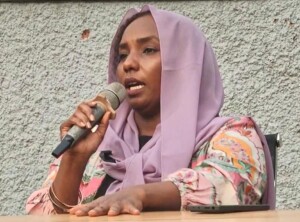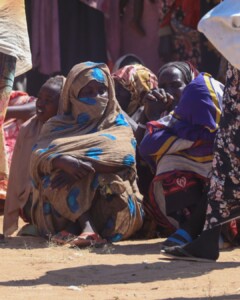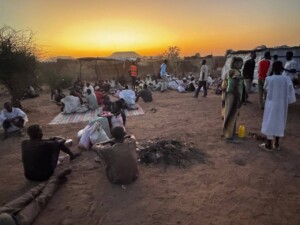Cancer on the rise in Sudan, Ministry acknowledges sanitation health hazard
Expensive imported medicines represent a major challenge for the Sudanese health sector in the face of the country’s foreign exchange deficit. The Federal Ministry of Health has acknowledged that poor or absent sanitation constitutes a major health hazard in the country.
 File photo
File photo
Expensive imported medicines represent a major challenge for the Sudanese health sector in the face of the country’s foreign exchange deficit. The Federal Ministry of Health has acknowledged that poor or absent sanitation constitutes a major health hazard in the country.
The head of the Oncology Research Centre at the Ministry of Health in Sudan, Dr Dafallah Abu Idris, has announced that about 12,000 cases of cancer are recorded annually across Sudan.
He said that the treatment of cancer placed high demands on resources as a single course of medicine costs between SDG 50,000 ($1,050*) and SDG 500,000 ($10,500) and a six-month treatment costs SDG 540,000 ($11,370).
Rise in child cancer
In July this year, the Children’s Cancer Hospital in Khartoum said that the number of cancer cases among children is steadily increasing in Sudan.
In a statement, specialists at the hospital pointed to statistics of the Child Cancer Department of the main hospital of Wad Madani, capital of El Gezira.
The department received 139 new cases in 2017, while the number of children visiting the hospital for checks reached 2,649 last year. This year however, the Wad Madani Hospital has been recording between 12 and 17 new cases each month.
In September 2016, the Children’s Cancer Hospital reported that the number of cancer cases among children in the country rose to more than 400,000 that year.
The coordinator-general of the hospital attributed the increase to the use of potassium bromide in bread, and the growing environmental pollution, including contaminated drinking water brought about by industrial waste, expired pesticides and fertilisers, and the lack of an adequate sewage system.
Sanitation risk
Sudan’s Federal Ministry of Health announced that are 10 million people in the country who live without proper or any sanitation, and are forced to use the open and a toilet. The Ministry has acknowledged “the emergence of health problems as a result of the habit”.
Poor sanitation and contamination of drinking water are blamed for the spread of diseases such as cholera, which have become endemic in parts of the country.
In October, the Sudan Call, a coalition of opposition parties and armed movements, submitted a memorandum to the director-general of the World Health Organization (WHO) drawing attention to “the terrible collapse in the health sector, the spread of epidemics in Sudan such as cholera, and its transformation into an endemic disease amid government misinformation”.
Cholera
Sudan has experienced a cholera epidemic since 2016 which the Sudanese government insists on calling ‘watery diarrhoea’. In spite of numerous independent confirmations (conducted according to WHO standards) that the disease which broke out in Blue Nile state in August 2016 was cholera, the Sudanese authorities and several international organisations persistently refer to it as ‘acute watery diarrhoea’.
The WHO and the Sudanese Ministry of Health reported in mid-October that the total number of recorded cases reached more than 35,000 people – including 800 related deaths. Doctors of Sudan’s National Epidemiological Corporation reported in early July however, that nearly 24,000 Sudanese had been infected and 940 cholera patients died.
In May, Sudan’s federal Minister of Health, Bahr Idris Abu Garda, declared that Sudan is now free of the 'watery diarrhoea' outbreak (suspected to be cholera) that hit various parts of the country during the past year.
All currency conversions based on the daily US Dollar rate quoted by the Central Bank of Sudan (CBoS)
Follow #CholeraInSudan, #الكوليرا_السودان for ongoing coverage by Radio Dabanga











 and then
and then